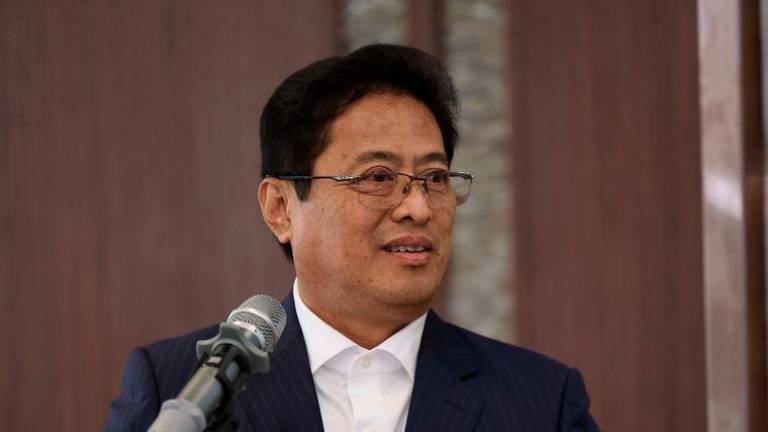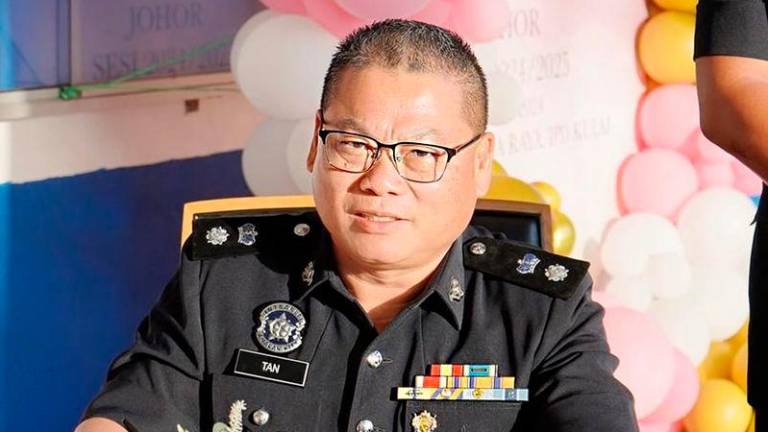PETALING JAYA: Speak about Macau scams and one realises that a wide range of people, including professionals, continue to fall victim to them each year, and it matters little whether one is educated or technologically savvy.
Figures released by the Malaysian Communications and Multimedia Commission revealed that a total of 1,585 cases of Macau scams were recorded last year, averaging 132 cases each month. Losses amounted to RM560.8 million in that year alone.
In two of the latest cases, a property agent lost RM7 million after being tricked by a scammer impersonating a Health Ministry officer while on June 1, a woman in Perak lost RM132,860 in a used car scam on Facebook.
To counter this, SiberKASA was set up as an initiative by CyberSecurity Malaysia exclusively to develop, empower, sustain and strengthen the cyber security ecosystem and infrastructure to combat increasingly complex and sophisticated cyber threats and cyber attacks.
The modus operandi of Macau scammers is often to impersonate law enforcement agencies, bank officers or even kidnappers and use fake official documents to trick potential victims into revealing confidential information.
In light of the almost daily occurrence of such scams in the country, theSun looked into what causes doctors, lawyers, teachers and even bankers and financial consultants to fall victim to scammers.
Dr Cassandra Aasmundsen-Fry, a clinical psychologist practising in Kuala Lumpur, said a scammer’s modus operandi involves psychologically manipulating potential victims.
“Scammers incite fear and panic and insist they have vital and confidential information that will damage the individual in a criminal or legal matter.
Aasmundsen-Fry said scammers usually pose as bank agents or police officers, the mere mention of whom would immediately raise the level of unease.
“They then use coercive techniques to influence the potential victims to believe they are guilty and that only the scammers can provide relief.
“This sets up a dynamic in which the person is unable to think, fear for themself and their loved ones, and see the scammer as the only way out of the predicament.”
Aasmundsen-Fry said initially, a scammer would use alarming statements to cloud the judgement of potential victims and fluster them into feeling a sense of danger, which immediately causes the release of adrenaline and cortisol into the bloodstream.
She said this increases the heart rate and initiates the “flight or fight” response that inhibits a person’s ability to think clearly or solve problems.
She added that mentally, the individual would not be able to think clearly and instead gravitates towards “worst-case scenarios and catastrophes” while feeling anxious and experiencing panic attacks and psychological distress.
“It is at this point that the person feels at a loss and that the scammer is offering a lifeline by playing the role of a ‘good cop’ and helping him see a way out of the mess that he is made to believe he is in.
“However, the ‘solutions’ provided by the scammer only serve to extract confidential information such as bank account details or having the person transfer money to the scammer’s bank account.”
On why literate people such as lawyers, engineers or doctors fall for Macau scams, Aasmundsen-Fry said: “The fear of loss in reputation and damage to their positions in their work or families cause them to throw caution to the wind.
“Furthermore, they may be aware of the dangers of losing their assets, making them more prone to the fear and paranoia arising from the scammer’s phone call.”
Aasmundsen-Fry also said individuals who have been scammed are prone to prolonged stress due to the impact of losing a huge amount of money, that could sometimes be their entire life savings.
This may cause anxiety attacks, depression, and physical symptoms such as increased blood pressure.
She said the best way to avoid being scammed is to familiarise oneself with the tactics of scammers and whenever in doubt, immediately end the call, adding that one should also verify the caller’s claims with the relevant authorities or their bank.
“A genuine caller will not ask you to transfer money or make immediate threats (pushing) you to act. If you find yourself in a situation where this happens, hang up, take some time to breathe and discuss what has happened with a trusted person who can help you gain perspective of the situation.”










